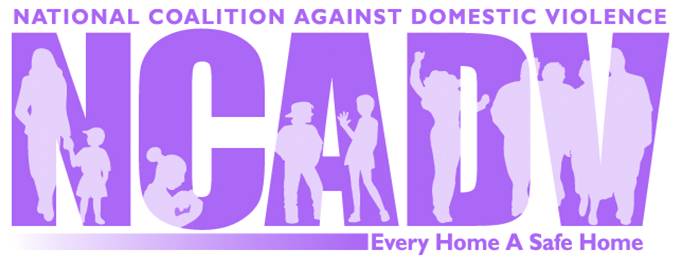 “My personality and entire lifestyle changed. I had to quit my active involvement with the Chamber of Commerce, could not call on my big corporate accounts with male clients, and was accused daily of having affairs. My long-time friends did not know the hell I was living through. I was so ashamed.” — Dr. Gayle J. Hall.
“My personality and entire lifestyle changed. I had to quit my active involvement with the Chamber of Commerce, could not call on my big corporate accounts with male clients, and was accused daily of having affairs. My long-time friends did not know the hell I was living through. I was so ashamed.” — Dr. Gayle J. Hall.
Is your co-worker constantly making excuses for being late to work or missing work more frequently than normal? Is your friend unavailable to meet you for lunch dates with no apparent reason, after getting into a new relationship? Does she seem different, withdrawn, or unhappy, when she used to be a bubbly, cheerful person? All of these may be signals or signs of domestic violence.
The outward signs of physical bruising, black eyes, or broken bones are naturally, easy to spot. Have you ever noticed a woman with a black eye and point-blank asked her how she got that? If you have noticed this and not asked her, why not? A person usually does not get a black eye unless they have undergone eye surgery or been smacked in the eye with brutal force.
The tanning salon I used for six months, there was a girl at the counter who had two black eyes. I was not going to ignore what I already knew to be the truth. I knew she had been a victim of domestic violence. So I calmly said something akin to, “Wow, that must have really hurt getting those black eyes. Are you okay?” The young woman looked away from me and lied, stating that she ran into a door. Now, almost everyone knows when you run into a door your eyes are not the first thing that will hit the door. I remarked, “I am surprised you do not have bruising on your forehead, too. You were really lucky, huh?” She looked up at me then and said, “Yeah, I guess I was really lucky that time.” Her face was drawn and she was very sad. I asked if I could hug her and she told me I could. As I gave her a gentle hug, I whispered in her ear that I knew what had really happened—domestic violence. I told her there were places she could go to talk about this and get some help. I wrote my number down on the back of one of their business cards and asked her to call me if she ever wanted to.
Domestic violence causes loss of productivity in the work place more than employers understand. Many supervisors blame employees tardiness on laziness, when in fact, this may be due to violence in the home. The employees will not admit the truth for fear of being blamed or being ashamed.
One of the abusive characteristics of the batterer is to isolate his victim away from her place of employment, cutting her off from financial income and security, while removing her source of social support from friends. Additionally, by doing so, the abuser is forcing more control over his victim of domestic violence by making her rely on him for full support for food, fuel, and hygiene. He may keep her trapped inside the home and not allow her to leave the house, even to purchase groceries. In extreme cases, the batterer may limit her intake of food.
Isolation is a dominant factor in the abuser's mind. He likes to remove his battered woman from society, her friends, and from her family. The abuser may make the victim out-of-state thousands of miles from her home, just so he can have even more power and domination over his victim.
If you have a friend or co-worker who seems to have changed her personality drastically over the past few months, inquire what is going on in her life. Most victims of domestic violence will not tell you what is wrong at first, because they have been threatened with harm by their abuser. Very often, the threat of harm has been promised against a family member, such as their children, or their parents.
The principal key to take away from reading this article is to remember that domestic violence is not always visible. One must be willing to step up and ask if help is needed, if uncertainties exist. You could save a life by asking a simple question or showing that you care and gaining the victim's trust. The first step is to gain the victim's trust enough that she can feel safe enough to talk with you. Leaving an abusive partner is not an easy process. Sometimes it takes the support of several people to provide enough courage to finally leave.
Please read the previous, third article titled, “Domestic Violence: Recognizing the Three Phases – Part Three, in a Series of Six.”
Watch for and read the fifth article in this series of six on domestic violence titled, “Domestic Violence: The Downfall of Domestic Violence—Part Five, in a Series of Six.”
©Copyright — Gayle Joplin Hall, PhD. All rights reserved worldwide. None of this material may be downloaded or reproduced without written permission from the author.















My friends all knew I was seeing a new man after being married for so long, and then divorced. They probably thought I was just “in love” and busy with my new relationship. The Chamber of Commerce staff and I had become very good friends throughout all of my years of involvement. When I suddenly disappeared from membership development and resigned as the one who was in charge of corporate speakers, I did receive a phone call asking what that was all about. I cannot recall what I told Robin, but I know it was not the truth.
If only people had known the hell I was living through, I wonder what they might have said or done to have helped me. Anything…nothing…everything, to save me?
Your thoughts and comments would be so greatly appreciated. Please contribute to this blog and be sure to read all six of the articles on domestic violence in this series.
Shining my love into your world, Dr. Gayle J. Hall
Hi Dr. Gayle; I have not had the time yet to read all of your articles, however this one did catch my eye.
I think I know someone who is dealing with this issue. I don’t know for sure if it is physical, I think it could be. She is completely withdrawn from her family.
My question… what can you do to help them if they just don’t seem to want it. You call them, you ask point blank and they deny. What does it take to get them out of this situation and away from the abuser. I have asked this person many times, she always makes excuses that she is just busy, or I have just been so tired from work. etc..
So at the end of your article, you say. If only people had known what you were going through. What would have been helpful to you? What can I possibly say to her?
Hello, Melanie: Please do take time to read the six articles because this will help you to understand the cycles of abuse, why she cannot talk about this even when she wants to, and what is holding her back. That would be the first thing I would say. All six blogs (articles) written here on my web page would not take 30 minutes to read and you could help to save a life.
Secondly, I thank you for caring about your friend and for writing to me for help. She needs you and you are indeed a good friend.
You say that you think the abuse may be “physical” – if it was physical, you would see the signs of it, more than likely. The outward signs would show – not always, but usually. The emotional and verbal abuse are what leaves scars, however, the psychological abuse is what is causing her to stay in the relationship, unfortunately.
In your words, “what can you do to help them if they just don’t seem to want it?” The only thing you can do is to keep bringing up small talk of things like, “Is there anything you’d like to talk about?” or “Is everything okay at home?” – just keep asking and showing interest. Let them know if they ever want to talk, you are there for them.
Your question, “What does it take to get them out of this situation and away from the abuser?” My reply is a great life coach who understands the dynamics of domestic abuse and one who can help her understand that is no way to live. Sometimes they need guidance and support or lack the funds for this guidance. A woman will not leave her abuser until she is ready to do so.
What would have been helpful to me would have been support from my friends. Support in knowing I had a place I could physically go and live and take care of my son. I was afraid of being homeless. All you can say to her, depending on your level of friendship, is to let her know how much you care. If the monetary issue is a problem for her with guidance or counseling, just ask about that also. An abused woman has many things to consider, but ultimately, her safety should be first.
Melanie, thank you for being a good friend. Don’t give up on her.
Shining my love your way, Dr. Gayle J. Hall
To My Readers: I wanted to mention one more thing in regards to the above post and my reply. During the past two weeks, I have received three calls and coaching sessions from women who were in complete denial of ABUSE. It is a dirty word, sort of like having dirty panties on. Abuse is nasty. Psychological abuse is rotten and eats at your very core. The manipulator makes the battered woman feel like she deserves the treatment she is getting. Therefore, her answer is often, “Well, I did this to deserve that” or, “If I had been better at this or had not have griped, then he would not have done that.” There is always an excuse for his behavior and ALWAYS DENIAL for her abuser. ALWAYS.
Until she gets the guidance she needs and realizes she does not have to live that way any more, she will put up with the psychological torture and the control of her abuser. Or, she may be making a 911 call some day when things do get out of control, if she does not get killed during a fit of rage. It is really that simple.
I hate to sound crappy, so please do not just take my word for it. Go read the statistics of domestic violence abuse for yourselves, then bring your friends to an expert for help. God bless you.
Shining my love into your world, Dr. Gayle J. Hall